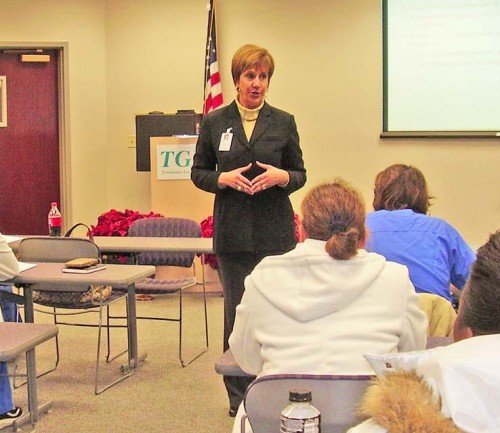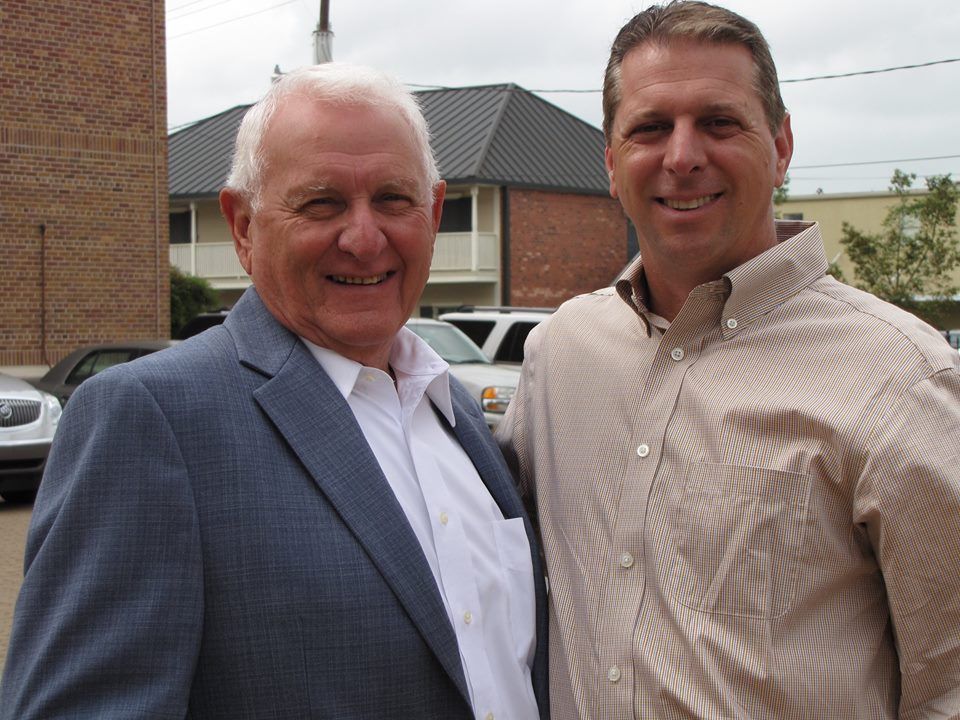
Economics influence gasoline prices
January 11, 2011Child safety seat event scheduled
January 13, 2011When thinking of proper etiquette, images of the young Mia learning how to become a princess in “The Princess Diaries” comes to mind.
Etiquette training for heads of state or political figures is a no brainer, but what does it have to do with the rest of us?
Plenty.
No employee handbook has the passage ‘Be as uncaring and rude to our customers as possible. Maybe they’ll go away and leave us alone.’
The person answering the phone or greeting customers at the front door is a business’ first contact. Make a bad impression, and that customer will go someplace else.
The same is true when trying to find new employment, make a bad impression and that employer could move on to the next applicant.
So what is good etiquette and is it the same as good manners?
“I think etiquette is a broader subject. When making good first impressions, the majority of it is non-verbal. It’s your posture, the type of handshake you give, eye contact, smiling,” said Etiquette Center of the South owner Mary Chauvin.
The Houma business owner became interested in etiquette when her daughter Melanie was in eighth grade going to her first dance. Her date reached to open the car door but she beat him to it.
“I thought, ‘Oh my gosh. She’s going into a whole new part of life and I completely forgot to tell her how to let the boy show chivalry like we southerners are so used to.’ When I was growing up they had classes you could go to at Dillard’s and I wondered if there was anyone who still did that?” Chauvin said.
She checked around the area and the closest school was in New Orleans. A business idea was born.
Chauvin was already a teacher and knew all she needed was some training. She decided on the Protocol School of Washington.
“I signed up, got trained and started off doing classes for children,” Chauvin said.
That quickly evolved into business training when her students’ parents realized their employees could use the same skills in the work place.
“The people who call me are usually the business owners or the person who is directly in charge of the employees. Many of them find out that they need etiquette training when they call their own business and are shocked by how the phone is answered,” Chauvin said.
First-time Etiquette Center of the South customers are interviewed to determine what areas need improvement. To help spark her clients’ thought process, Chauvin has a list of basic skills which include professionalism, conflict resolutions, making good impressions and technology etiquette.
“Sometimes they also want to get into office dynamics n employees working in teams in the office, civility within the office and dealing with difficulties with customers,” Chauvin said.
Etiquette Center of the South clientele not only includes local and regional businesses, but Louisiana universities as well.
Chauvin does dining training for an organization at LSU, sixth grade dining etiquette at Northwestern and interviewing skills at Nicholls’ business department.
Some clients don’t engage Chauvin’s services for the purpose of training at all, but observation. Car dealerships, hospitals and even a local judge have asked Chauvin to give her impression of their workplace.
“Judge Jude Fanguy wanted me to observe everybody n including himself n in his courtroom. He wanted to make sure he was well mannered and respectful when handling the people in front of him as well as the marshals, attorneys and all the people who worked for him,” Chauvin said.
The Krewe of Terreanians approached Chauvin for advice on how the girls of the royal court should present themselves appropriately at the parties and ball.
Even Chauvin’s daughter became a client when she was crowned Queen Terre LVIII in 2008, she needed to know how to curtsy, sit properly (no crossing of the legs at the knee) and receive toasts.
“I told her when you’re toasted, you’re being honored and to drink to yourself is boastful. So you just bow your head and say thank you or hold up your glass n but do not let that glass touch your lips,” Chauvin laughed.
Chauvin believes the basics in manners and etiquette are being pushed aside by the times.
“Especially with so much technology. I tell people if you’re speaking with someone face-to-face and sitting in front of a computer screen, turn and face them n turn away from the computer screen. It takes effort,” Chauvin said.
Basic greetings are also on Chauvin’s bad etiquette hit list.
“You don’t even have to say a word but just make eye contact and smile. I don’t see that a whole lot any more. Within the workplace people don’t tell each other good morning and goodbye when they leave,” she said.
The local businesswoman believes etiquette basics are becoming scarce because many children are being raised at a nursery and when they come home their babysitter is television or the computer.
“Life has gotten so fast that human one-on-one interaction has deteriorated. In fact there’s a recent study that says because of technology 93 percent of all communication is non-verbal. The study went on to say that the younger generation is now having trouble with reading body language. If people cannot read your body language, that is huge,” Chauvin explained.
“The art of conversation is getting lost. Those who get nervous when they have to make customer service calls get that way because they don’t know what to say. They don’t know to ask questions, what questions to ask and how to be interested in the other person,” she continued.
Chauvin admits her biggest challenge is reminding herself nobody is perfect.
“Because I teach etiquette it’s almost like trying to create a perfect world and I have to remind myself that it’s perfect the way it is. We can only try to be better. We have so much to learn from each other”.
“I love watching people n I study them. I look for good manners all the time. It’s kind of a curse in my profession because I expect the highest,” Chauvin said.
Mary Chauvin of Etiquette Center of the South speaks with employees at a recent training class at Terrebonne General Medical Center. When not teaching etiquette to local employees, Chauvin works as the Alumni Director at Vandebilt Catholic High School. JENNIE CHILDS









